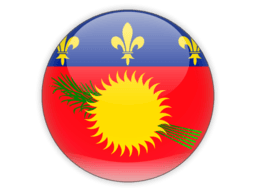
Guadeloupe is an archipelago located in the eastern Caribbean Sea. It is an overseas region of France, meaning it is officially part of France and is subject to French law and administration.
Guadeloupe consists of two main islands, Basse-Terre and Grande-Terre, which are separated by a narrow strait called the Rivière Salée. The islands are volcanic in origin, and Basse-Terre is home to the active La Soufrière volcano. Guadeloupe also includes several smaller islands, including Les Saintes, Marie-Galante, and La Désirade.
The population of Guadeloupe is around 400,000 people, and the official language is French. The majority of the population is of African or mixed African and European ancestry, and the official currency is the euro.
The economy of Guadeloupe is largely based on agriculture, including the production of sugarcane, bananas, and coffee. Tourism is also an important industry, with visitors attracted to the islands' beaches, natural beauty, and cultural heritage.
Guadeloupe has a rich cultural history, with influences from African, European, and Caribbean traditions. The islands are known for their music, dance, and cuisine, which combines French, African, and Caribbean flavors.
As a French territory, Guadeloupe is part of the European Union and uses the euro as its currency. The archipelago is also a member of the Organisation of Eastern Caribbean States (OECS) and the Caribbean Community (CARICOM).
Mark Guadeloupe as Visited
Add Guadeloupe to your personal travel map and track your journey around the world. Share your adventures and see your progress grow!